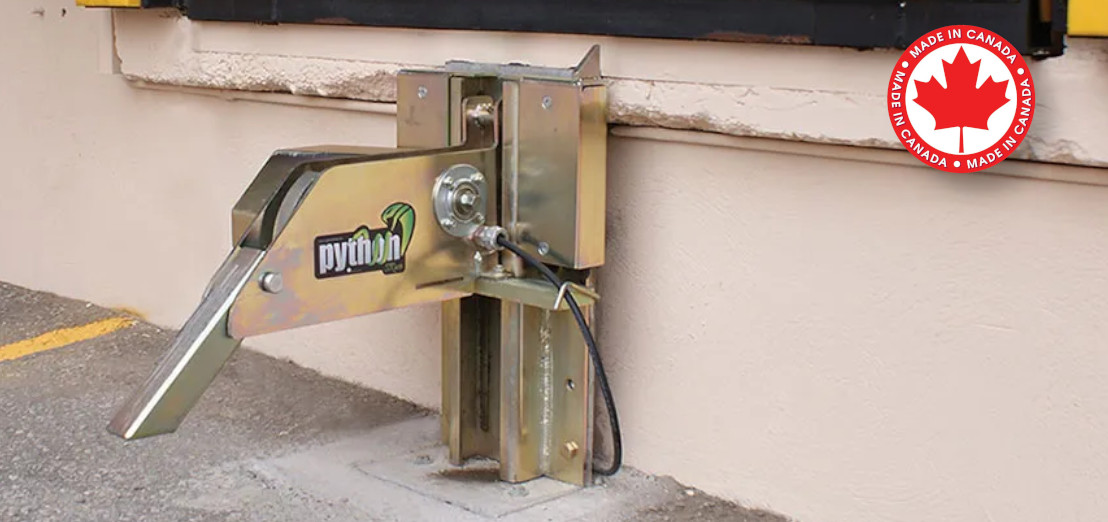- No mechanical limit switches
- LED Communication lights
- Low profile
- Zinc plated
- Dock leveler & door interlock capability
- Available in multiple voltages

Truck Restraints are designed for safety and reducing the risk of dock accidents. With a high-visibility hook-style restraint arm, it is the ideal solution for keeping workers, equipment, and cargo safe during loading and unloading. Also a cost-effective alternative to hydraulic truck restraints, its rugged design makes it virtually maintenance-free with the ability to function in the toughest environments. The unique rotating hook engages over the impact guard using a restraining force of 32,000 lbs (14,514 kgs). You can rely on the dependability of this truck restraint and worry less about the direct and indirect costs of an industrial accident.
It is a serious safety hazard for a trailer to pull away from your loading dock while your forklift operator is still inside. A vehicle restraint (also known as truck restraint and dock lock) is a piece of equipment installed at the loading dock that is intended to prevent a transport vehicle from leaving the dock during the loading/unloading process. A vehicle restraint can also help keep your very expensive trailer and cargo at the dock where it belongs rather than disappearing as soon as you leave for the day.
Some of our restraint features are.
Colored lights to communicate the status of the loading operation to the dock operator and to the driver of the transport vehicle. Typically one set of lights is visible to the dock operator to indicate whether the restraint is engaged, and another set of lights is visible to the transport vehicle driver to indicate whether it is safe to pull the vehicle away from the dock. The lights are typically green to indicate “GO” and red to indicate “STOP”. Amber lights may be used to indicate caution.
It is important to install a vehicle restraint safety system to prevent unintended truck departures at the loading dock. These are designed to lock a truck/trailer in the proper position at the loading dock during loading or unloading, these also provide visual safety in communication between the truck driver and the attendant of the loading dock.